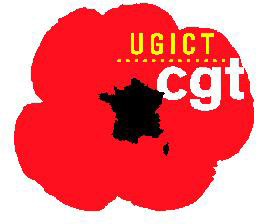News
State of play of P&MS unionism in Europe

This week P&MS representatives from several European countries gathered in Paris to discuss P&MS and unionism throughout Europe and the European Model of Responsible Management.
The conference organized by the French union UGICT-CGT in partnership with Eurocadres stressed the importance of having a global unionism for P&MS since the economy is now global as well.
In order to introduce the state of play of trade unionism for P&MS in Europe, Slavica Uzelac presented the last Eurocadres publication “Professional and Managerial Staff in Europe and their Trade Unions in the 21st century” which is an update from the 2003 version. The major improvement of the new version is the introduction of estimates on future trends on P&MS in Europe.
The main findings of the publication are as follows. Today, 19.3% of the European workforce are P&MS which is a 2% increase compared to 2003. Generally, P&MS have more formal qualifications such as university diplomas than it used to be. But, this category of workers is loosing some privileges and advantages and is also facing increasing unemployment, thus still in a minor proportion than less qualified employees. The situation is also deteriorating for young graduates who face more precarious working conditions (short-term contracts, individualization of pay, more flexibility, lower salaries) when they entered the labour market as P&MS.
In terms of working hours, 28% of P&MS work more than 48 hours per week while the average is between 35 and 43 hours for professionals and managers respectively. When a P&MS is awarded supervisory functions his working time increases by an average of 6 hours a week. The work intensity is also growing with tight deadlines and high-speed work becoming the norm.
When it comes to gender, the situation is still unsatisfactory with 46% of P&MS being women but only 34% being managers and 3% presidents of body making decisions of firms. Finally, the lack of a clear definition of P&MS at a European level is still quoted as a major hurdle to analyse the conditions of these workers and to organize them.
The difference of union structure and the way unions organize P&MS in different countries has then been debated by participants. Some examples like the French “day pass” which means P&MS work is not paid and recognized in hours but in days (leading to an enormous amount of working time) and the fact that young researchers also face precarious conditions and are often not aware of their social rights have been introduced to the conference. This is why Eurocadres is trying to negotiate a collective agreement for researchers at a European level.
As for socially responsible management in Europe, Dirk Ameel from Eurocadres told the audience about the green book edited by the EU commission in 2001 on Corporate Social Responsibility (CSR) which had the aim to involve all social partners in the debate and to move the concept of CSR a step forward to Corporate Societal Responsibility in order to give it more credibility.
In 2005, Eurocadres published a manifest on CSR based on 3 dimensions (economic, social and environmental) and 3 “steps” (long-term view of the companies’ economic responsibility, good social behavior of firms and legal prescription OF CSR).
The manifest stressed the importance of involving unions in the debate to give P&MS people the possibility to negotiate the dimensions of CSR. Euocadres created an alliance on the topic at the time but no common agreement has been reached since employers blocked the process.
In 2007, the EU commission established a list of criteria to be eligible for CSR including the role of investors and the relationship with subcontractors. Since last year and the emergence of the financial crisis, nations are working on a resolution on CSR in the European council of ministers.
Some examples like the US whistleblower law and the importance of integrating the social dimension in the P&MS objectives as well as the link between CSR and the Lisbon strategy, social dialogue and the economic crisis have been discussed. UNI’s Lorenzo De Santis introduced Global Agreements and their CSR component as well as the ICT forum on Green ICT as examples of what unions can bring into the debate on CSR.

